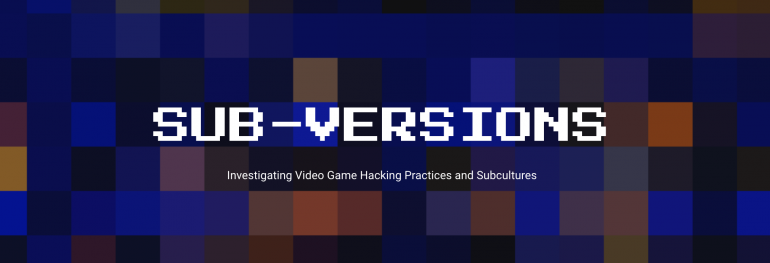
“Hacking” is an evocative term — one that is mired in tropes that reduce a diverse range of practices into a few stereotypically malicious activities. This thesis aims to explore one hacking practice, videogame hacking, whose practitioners make unauthorized alterations to videogames after their release. Through interviews, game analysis, and reflective writing, this thesis investigates videogame hacking subcultures of production — communities of creative labour that exist in the margins of mediamaking and the fringes of the law.
This thesis begins by reviewing popular media and existing accounts of computer hacker culture, primarily Steven Levy’s Hackers: Heroes of the Computer Revolution and Gabriella Coleman’s Coding Freedom, in order to contextualize videogame hacking in broader histories of computer culture. Using this analysis as a starting point, the author then proposes a reflexive methodological framework for studying videogame hacking subcultures, designed to accommodate the ephemerality of virtual communities and the apprehensions of participants.
The following two chapters refer to participant interviews to pursue two avenues of research. First, drawing upon Michel de Certeau’s writing on strategies versus tactics and Henry Jenkins chronicling of prohibitionist and collaborationist models, this study explores how intellectual property law serves as a site of tension between media companies and videogame fans. Second, the author explores the diverse motivations of videogame hackers who create works that are undistributable through commercial markets and may face the risk of legal action.
